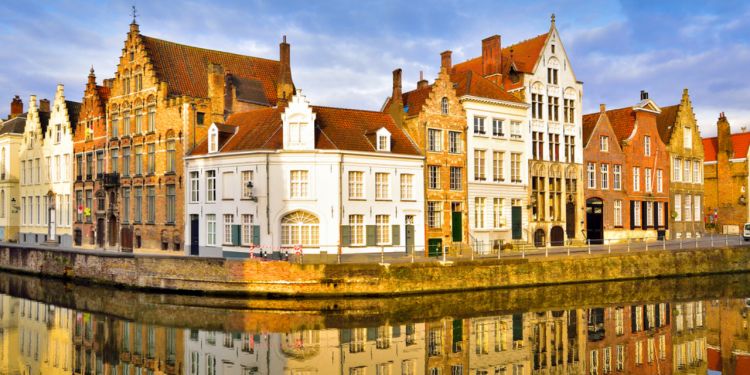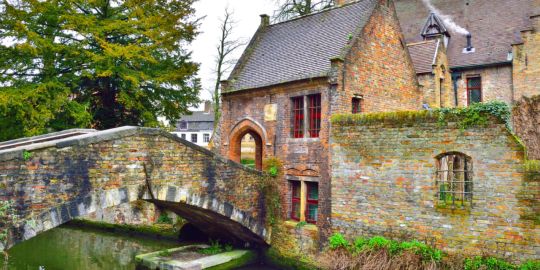How to buy a property in Belgium

The real estate in Belgium has the reputation of being relatively cheaper than its neighbors. We'll give you some helpful advice on what you need to know before purchasing a property in Belgium.
Real estate in Belgium
Most expats choose to rent while living in Belgium. However, some are attracted to investing in real estate because of the advantages of ownership in Belgium. Indeed, the Flat Country offers cheaper properties than its neighbors. However, Belgium has experienced increased prices in the real estate market since 2013 before being turned upside down again by the impact of the global coronavirus pandemic. After the health crisis, the Belgian real estate market went into overdrive. Still, in the first quarter of 2023, the trend is for a return to price stabilization and a decline in transactions compared to the same quarter of 2022.
Good to know:
71.3% of the Belgian population are property owners.
Is real estate purchase accessible to foreigners in Belgium?
Foreigners can invest in property in Belgium (houses, apartments, land, etc.). However, some conditions apply regarding taxation, depending on whether you're a resident. Don't forget to ask for further information, depending on your situation and residential status.
Generally speaking, there are three types of real estate:
- Residential buildings: ordinary houses, investment properties, villas, bungalows, country houses, apartments, flats, studios, and parts of residential buildings;
- Non-residential buildings: business premises, hotels, inns, commercial premises (part of the building); office buildings, other commercial buildings, industrial buildings, miscellaneous buildings not yet classified, farmers' dwellings, agricultural properties, horticultural properties;
- Land: building plots, farmland meadows, orchards, mixed farmland, industrial land, woodland, non-workable land, small fields, unclassified and miscellaneous land.
The following is an overview of average property prices in Belgium in the first quarter of 2023:
- House: €323,031;
- Apartment: €264,139.
The hunt for real estate properties in Belgium
Most properties on sale in Belgium have a sign outside the house or on the balcony. These signs are usually orange in color and display “on sale”, “te koop” (Dutch), or “à vendre” (French) on it.
You can also look for properties online. Many websites are dedicated to real estate sales and rentals in Belgium. They include Century 21, Immoweb, Logic-Immo, and Zimmo. You might even be able to find homes for sale through groups and forums online, especially expat ones.
You can also ask for help at rental agencies (immokantoor in Dutch and agence immobilière in French), but remember that this service comes at a price. Agency fees vary from €250 to €1,000, and sometimes more. Make sure you check that the agent you use is licensed by going to the website for Professional Institute of Real Estate Agents (Institut Professionel de Agents Immobiliers [IPI]).
For a more targeted search, consider using property hunters or chasseurs immobiliers. They're similar to estate agents but offer a more personalized service. This means higher fees.
Some properties in Belgium are sold at auctions. They're publicly advertised in newspapers with details of the sale. They can offer exciting opportunities for expatriates wishing to become homeowners in Belgium.
Formalities when buying a property in Belgium
There are three phases in the property purchasing process in Belgium: the bid, the sales agreement, and the deed.
The bid
The bid (koopintenties in Dutch and offre d'achat in French) is a similar concept to a job offer. With this document, sellers engage in selling the property but can withdraw their bid at any time. The buyer has to pay a small down payment, which isn't refundable in the case of the seller withdrawing the offer.
This document isn't mandatory for the purchase. However, many real estate agents prefer to have one. It's in your best interest to offer between 5 to 15% below the asking price for your bid.
If you're taking out a mortgage in Belgium, the lender might require you to conduct a valuation survey on the property. It's still a good idea even if they don't since it'll reveal any defects you might've missed. If it does, you can lower your offer. Valuation surveys usually cost around €200, plus VAT. You can find a surveyor through an estate agent or search with the Royal Institute of Chartered Surveyors (RICS).
The sales agreement
The sales agreement is also called verkooncompromis in Dutch or compromis de vente in French. This document displays all the details in the sales contract. Your real estate agent or notary can translate for you if you don't speak the language the paper's in. Otherwise, you have the right to hire and bring a translator.
Once the buyer and seller have signed this contract, it's binding. The seller can't turn around and accept a higher bid and reject yours.
At this point, buyers must pay nearly 10% of the total amount to a trust or the notary (for those with a mortgage, the lender will take care of this). The real estate agency or the seller cannot give this amount. The buyer has four months to pay the remaining amount and conclude the sale.
The deed
The deed or (notariële akte in Dutch) is the document vouching for the ownership transfer. A notary must make it in the four months following the sales agreement. During these four months, the property has to be inspected by an architect or a surveyor. The sale is also registered during this time.
Fees that apply when buying a property in Belgium
Around 11 to 15% of the property price will go into the different fees related to the sale for buyers (for new builds, this increases to approximately 22%). Those fees are as follows:
- Registration of the sale: 6% (Flanders) and 10% of the purchase price in other regions (for properties over two years old). Some exemptions apply.
- VAT: 21% of the purchase price (only for properties built less than two years ago).
- Notary costs vary from 0.2-4% of the purchase price, with an average of 1.6%. The percentage is pre-determined by law, depending on the sale amount.
- Mortgage: Administration costs will vary, depending on who your lender is and the type of mortgage you take out.
- Agency fees: Between €200-€1,000.
- Insurance: Those who take out a mortgage must apply for building insurance. You can also get contents insurance.









